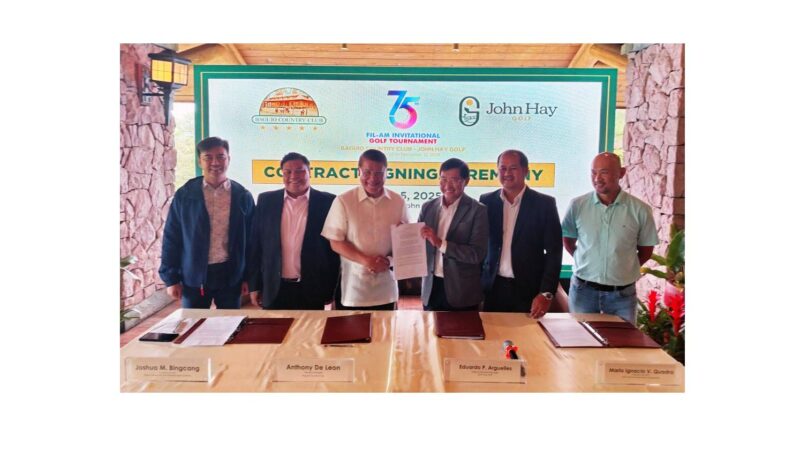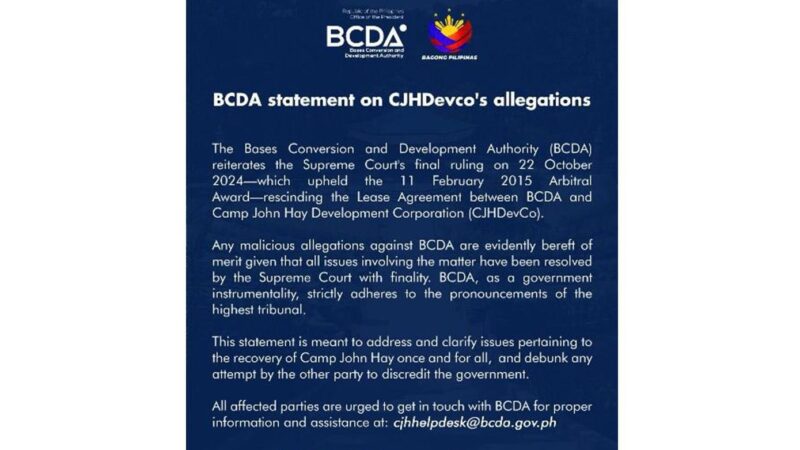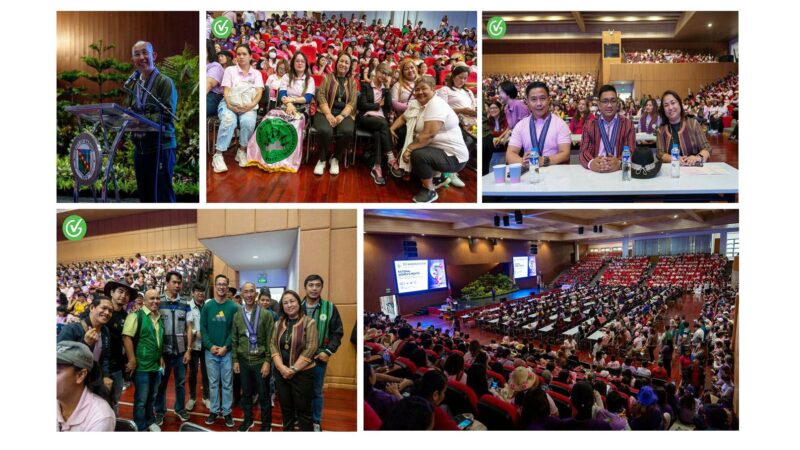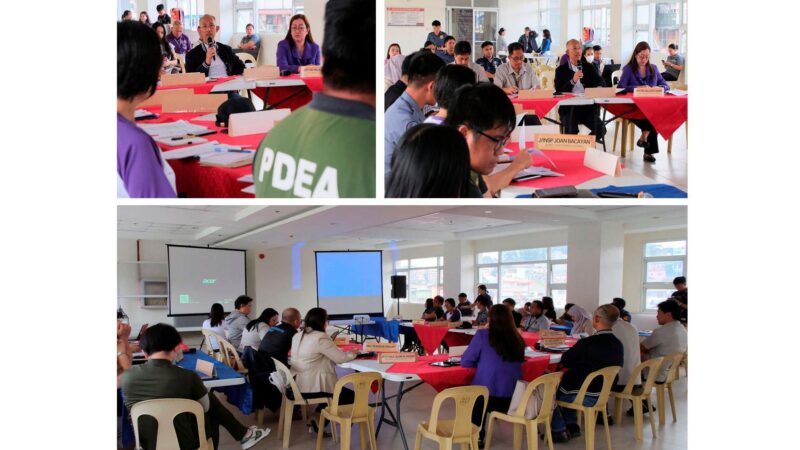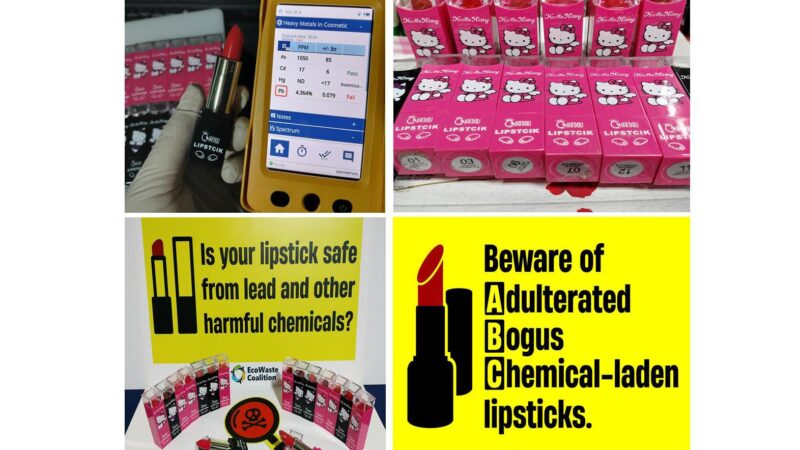EcoWaste Coalition Demands Immediate Removal of Leaded Paints from Store Shelves
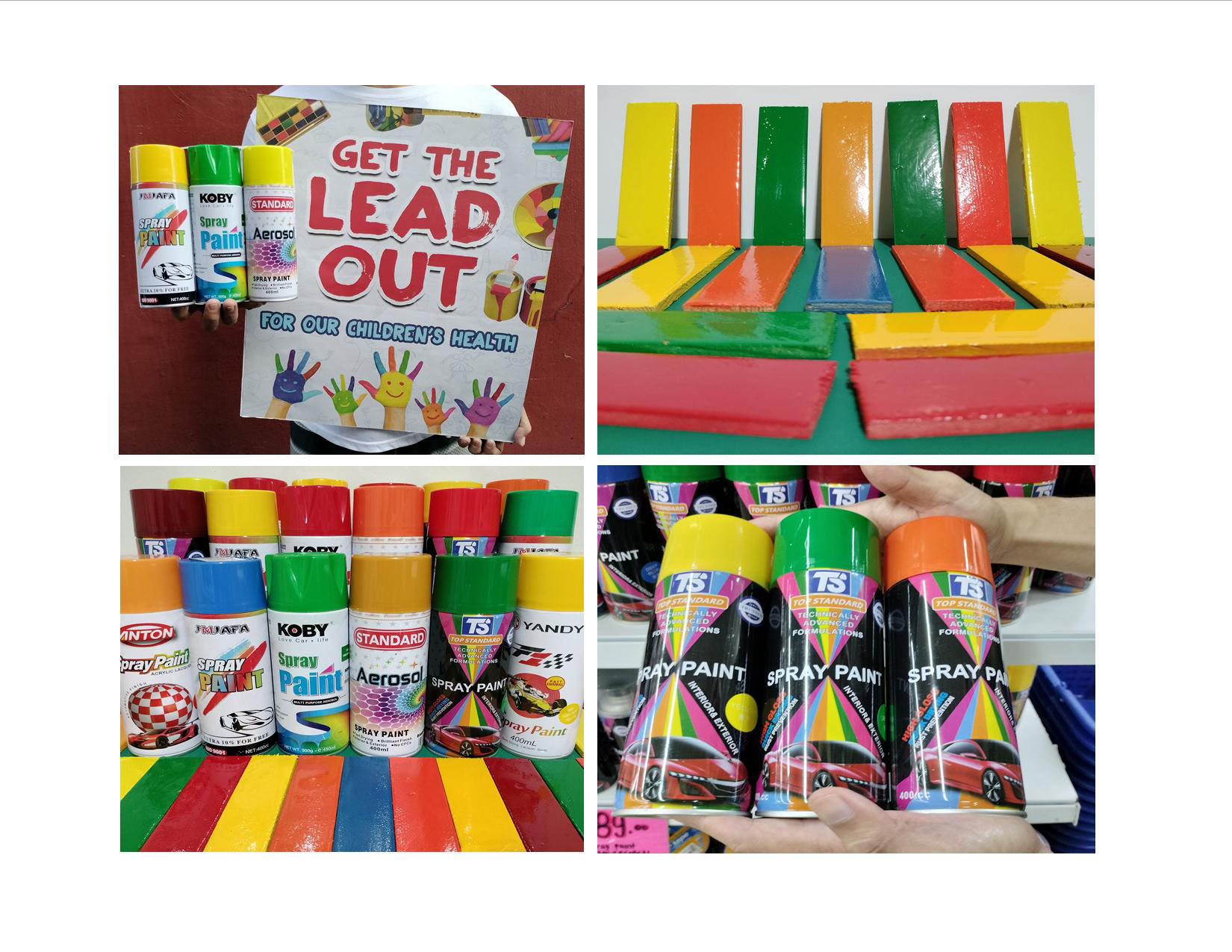
(Laboratory tests confirm lead above the legal limit in 18 more spray paints)
16 November 2024, Quezon City. The toxics watchdog group EcoWaste Coalition sought the immediate removal from store shelves of 18 additional spray paint products after they were confirmed to contain lead above the legal limit.
Based on the laboratory tests conducted by SGS, a global testing company, the 18 dried paint samples submitted for confirmatory analyses by the EcoWaste Coalition contained lead in excess of the 90 parts per million (ppm) maximum limit.
Of the 18 analyzed paints, 13 had lead concentrations exceeding 20,000 ppm, with JMJAFA Spray Paint (medium yellow), Koby Spray Paint (fresh green) and Standard Aerosol Spray Paint (art yellow) as the top three products with highest lead levels measured at 114,000 ppm, 102,000 ppm and 89,200 ppm, respectively.
Department of Environment and Natural Resources (DENR) Administrative Order No. 2013-24 established a strict 90 ppm limit for lead in all paints. Paints and similar surface coatings containing lead above 90 ppm are considered lead paints and are not allowed to be manufactured, imported, distributed and sold following the completion of the phase-out period on December 31, 2016 for lead-containing decorative paints and December 31, 2019 for lead-containing industrial paints.
“We request socially responsible retail stores to remove leaded paints from the shelves and return them to their suppliers for safe disposal,” said Manny Calonzo, Campaigner, EcoWaste Coalition. “These paints are a substantial threat to the health of children and other vulnerable populations and should not be made and sold at all. To stop such paints from entering the market, local retailers must obtain a manufacturer’s declaration of conformity with the 90 ppm total lead content limit based on third-party laboratory tests before offering such imported paints for sale.”
“Young children are particularly vulnerable to the debilitating effects of lead exposure even at low concentrations. Exposure to lead early in life can damage the developing brain and nervous system, causing developmental delays, learning difficulties, lower intelligence quotient (IQ), attention deficit disorder and behavioral problems,” said environmental health specialist Dr. Geminn Louis Apostol from the Ateneo School of Medicine and Public Health – Center for Research and Innovation (ACRI). “Children can be affected by ingesting dust or soil contaminated with lead that gets into their hands, eating leaded paint chips, and biting or chewing on objects like toys and furniture containing lead.”
“The influx of lead-containing paints in the local market despite the national ban should prompt the authorities into leading an advocacy that will tighten rules on the trade of lead chromates, the most common lead-based pigments, by subjecting these chemicals under the Rotterdam Convention’s Prior Informed Consent (PIC) procedure,” said Jeiel Guarino, Global Lead Paint Elimination Campaigner of the International Pollutants Elimination Network (IPEN). “We encourage the Philippines, a leader in global lead paint elimination, to join the governments of Cameroon and Morocco in nominating lead chromates for listing in the Rotterdam Convention. If successfully listed, firms exporting lead chromates or paints containing them may not export these commodities to a country that has not agreed to import them. The Philippines and other countries that have regulations banning lead paints can use the PIC rules to control or prevent the entry of lead chromates and lead paints into their ports.”
The 11 Anton, Standard, Top Standard and Yandy paints were marked “made in China” or “made in PRC.” The seven JMJAFA and Koby paints did not state their country of manufacture, but are suspected of being China-made, too. The products were obtained from chain stores located in Pulilan, Bulacan; Apalit, Pampanga; Binangonan, Rizal, and from retailers in Caloocan, Manila and Quezon Cities.
Below is the list of 18 analyzed spray paints and their lead levels:
Anton Spray Paint, Dongfeng orange red with 5,350 ppm
JMJAFA Spray Paint, medium yellow with 114,000 ppm
JMJAFA Spray Paint, grass green with 42,500 ppm
JMJAFA Spray Paint, VW blue with 1,870 ppm
JMJAFA Spray Paint, bright red with 256 ppm
Koby Spray Paint (new lid), fresh green with 102,000 ppm
Koby Spray Paint (new lid), medium yellow with 75,500 ppm
Koby Spray Paint (new lid), orange red with 23,800 ppm
Standard Aerosol Spray Paint, art yellow with 89,200 ppm
Standard Aerosol Spray Paint, Gongcheng orange red with 51,600 ppm
Standard Aerosol Spray Paint, orange yellow with 46,300 ppm
Standard Aerosol Spray Paint, Jialing red with 32,300 ppm
Top Standard Spray Paint, orange with 42,400 ppm
Top Standard Spray Paint, green with 38,300 ppm
Top Standard Spray Paint, yellow with 25,700 ppm
Top Standard Spray Paint, bright red with 167 ppm
Top Standard Spray Paint, scarlet with 112 ppm
Yandy Spray Paint, high heat yellow with 50,400 ppm
The discovery of the above18 leaded paints brings to 205 the number of lead-containing spray paints discovered by the EcoWaste Coalition during the last five years as a result of its vigilant advocacy to protect public health, children’s health in particular, from lead-containing paints, one of the most widespread sources of childhood lead exposure.
Just last month, the EcoWaste Coalition, IPEN and the Philippine Paint & Coatings Association, Inc. (PPCAI) published a “Public Notice on Lead-Containing Paints” listing 150 leaded spray paints representing 37 brands to inform and alert paint sellers and consumers. The list can be accessed at https://www.ecowastecoalition.org/leadspraypaints/
Reference:
https://chemical.emb.gov.ph/wp-content/uploads/2017/03/DAO-2013-24-CCO-Lead.pdf
https://ipen.org/site/listing-lead-chromates-under-rotterdam-convention


